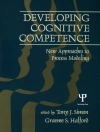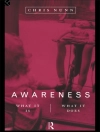This timesaving resource features:
- Treatment plan components for 31 behaviorally based presenting problems
- Over 1, 000 prewritten treatment goals, objectives, and interventionsplus space to record your own treatment plan options
- A step-by-step guide to writing treatment plans that meet the requirements of most accrediting bodies, insurance companies, and third-party payors
- Includes new Evidence-Based Practice Interventions as required by many public funding sources and private insurers
Practice Planners® THE BESTSELLING TREATMENT PLANNING SYSTEM FOR MENTAL HEALTH PROFESSIONALS
The Severe and Persistent Mental Illness Treatment Planner, Second Edition provides all the elements necessary to quickly and easily develop formal treatment plans that satisfy the demands of HMOs, managed care companies, third-party payors, and state and federal agencies.
- New edition features empirically supported, evidence-based treatment interventions
- Organized around 31 main presenting problems, including employment problems, family conflicts, financial needs, homelessness, intimate relationship conflicts, and social anxiety
- Over 1, 000 prewritten treatment goals, objectives, and interventionsplus space to record your own treatment plan options
- Easy-to-use reference format helps locate treatment plan components by behavioral problem
- Designed to correspond with The Severe and Persistent Mental Illness Progress Notes Planner, Second Edition
- Includes a sample treatment plan that conforms to the requirements of most third-party payors and accrediting agencies (including CARF, The Joint Commission, COA, and NCQA)
Additional resources in the Practice Planners® series:
Progress Notes Planners contain complete, prewritten progress notes for each presenting problem in the companion Treatment Planners.
Documentation Sourcebooks provide the forms and records that mental health professionals need to efficiently run their practice.
For more information on our Practice Planners®, including our full line of Treatment Planners, visit us on the Web at: www.wiley.com/practiceplanners
Inhoudsopgave
Practice Planners® Series Preface xi
Acknowledgments xiii
Introduction 1
Sample Treatment Plan 8
Activities of Daily Living (ADL) 11
Aging 19
Anger Management 27
Anxiety 36
Borderline Personality 45
Chemical Dependence 52
Depression 63
Employment Problems 72
Family Conflicts 79
Financial Needs 88
Grief and Loss 94
Health Issues 100
Homelessness 107
Independent Activities of Daily Living (IADL) 114
Intimate Relationship Conflicts 124
Legal Concerns 133
Mania or Hypomania 141
Medication Management 150
Obsessive-Compulsive Disorder (OCD) 157
Panic/Agoraphobia 164
Paranoia 173
Parenting 181
Posttraumatic Stress Disorder (PTSD) 190
Psychosis 200
Recreational Deficits 208
Self-Determination Deficits 216
Sexuality Concerns 226
Social Anxiety 235
Social Skills Deficits 243
Specific Fears and Avoidance 251
Suicidal Ideation 259
Appendix A: Bibliotherapy Suggestions 269
Appendix B: References for Evidence-Based Chapters 285
Appendix C: Recovery Model Objectives and Interventions 305
Over de auteur
ARTHUR E. JONGSMA, JR., PHD, is Series Editor for the bestselling Practice Planners®. Since 1971, he has provided professional mental health services to both inpatient and outpatient clients. He was the founder and director of Psychological Consultants, a group private practice in Grand Rapids, Michigan, for 25 years. He is the author or coauthor of over 50 books on treatment planning and has conducted training workshops for mental health professionals around the world.
DAVID J. BERGHUIS, MA, LLP, is in private practice and has worked in community mental health for more than a decade. He is also coauthor of numerous titles in the Practice Planners® series.
TIMOTHY J. BRUCE, PHD, is Professor and Associate Chair of the Department of Psychiatry and Behavioral Medicine at the University of Illinois College of Medicine. In addition to maintaining a diverse clinical practice, Dr. Bruce is active in classroom and clinical teaching as well as educational program administration. His major areas of interest and contributions to the literature have been in the evidence-based practice of clinical psychology, psychotherapy research, and the teaching of clinical psychology. Dr. Bruce has received over three dozen awards for his professional efforts to date.












